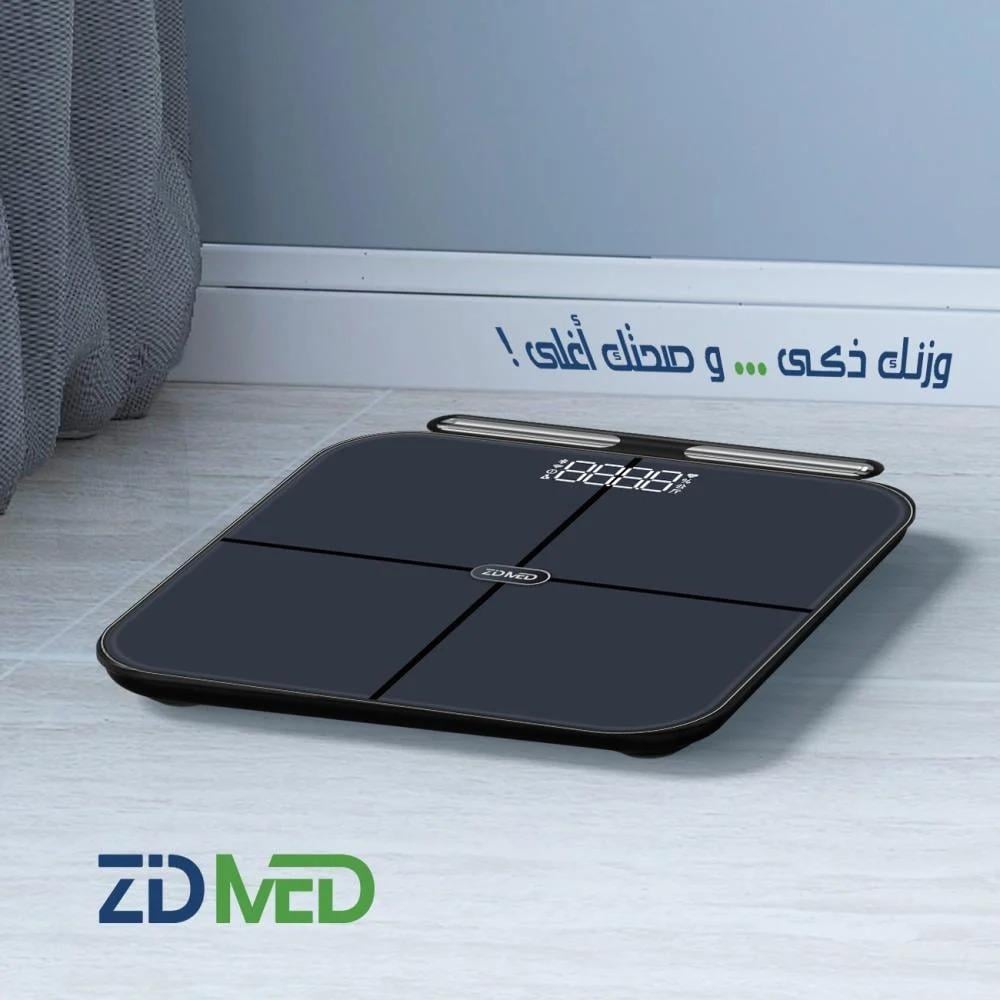We all know how important it is to monitor our weight and maintain a healthy body, but many people make mistakes when measuring their weight, which leads to inaccurate results. Today, we’ll talk about the most common mistakes that affect the readings of a weighing scale and how to avoid them to get more precise measurements.
Mistakes That Affect Your Weight Measurements
Here’s a list of mistakes that can significantly impact your weight readings. Avoiding these errors will help you get more accurate results and track your progress with confidence.
1) Weighing Yourself on a Cheat Day
One of the biggest mistakes people make is measuring their weight on a cheat day, which is usually filled with heavy meals and sweets. The body retains food and fluids, causing the scale to show a higher number than usual. That’s why it’s better to wait for a normal day without overeating before using a body weight or body composition scale.
2) Measuring at Different Times of the Day
Many people measure their weight at different times of the day, which leads to inconsistent results. Weighing yourself in the morning gives a different number than at night because your body loses fluids and gains other substances throughout the day. To get consistent results, always weigh yourself at the same time—preferably in the morning after waking up and using the bathroom. This helps you track your body composition more accurately.
3) Placing the Scale on an Uneven Surface
You might think all scales give the same result, but if your body weight scale is placed on an uneven surface or a carpet, the reading won’t be accurate. The scale must be placed on a hard, flat surface to give precise body composition measurements.
4) Weighing Yourself Every Day
Another common mistake is weighing yourself daily. Your body’s water levels fluctuate each day, so the number can change without any real reason. It’s better to weigh yourself weekly or according to your tracking plan. This gives you more accurate body composition data and helps distinguish real weight changes from temporary fluctuations.
5) Wearing Heavy Clothes
Some people weigh themselves while wearing heavy clothes. Sometimes, clothing can add more than 0.8 kg, which increases the number on the scale unnecessarily. Try wearing light clothing or none at all when measuring your body composition to get a true reading.
6) Using More Than One Scale
Many people think that weighing themselves on multiple scales will give a more accurate result, but in reality, it only causes confusion. Each scale has different sensors and calibration, which makes the readings inconsistent. The best solution is to rely on one precise, smart scale that provides stable measurements and automatically stores your data, so you can easily track your progress.
7) Weighing Yourself After Exercise
Finally, one of the major mistakes is weighing yourself immediately after working out. The body loses fluids during exercise, making your weight appear lower than it actually is. Wait a bit after your workout or weigh yourself another day to get an accurate body composition reading.
Once you avoid these mistakes, you’ll get more accurate results using a body fat scale with 8 electrodes. It helps you track your weight and body composition changes precisely and consistently.
Every small detail in how you measure affects your results—from the timing to where you place the scale. With a smart scale, every reading becomes precise and instantly updated on your phone. You can monitor your weight, fat percentage, and muscle mass easily—without effort or guesswork. Invest in your health today and start tracking your body with accuracy and intelligence.

